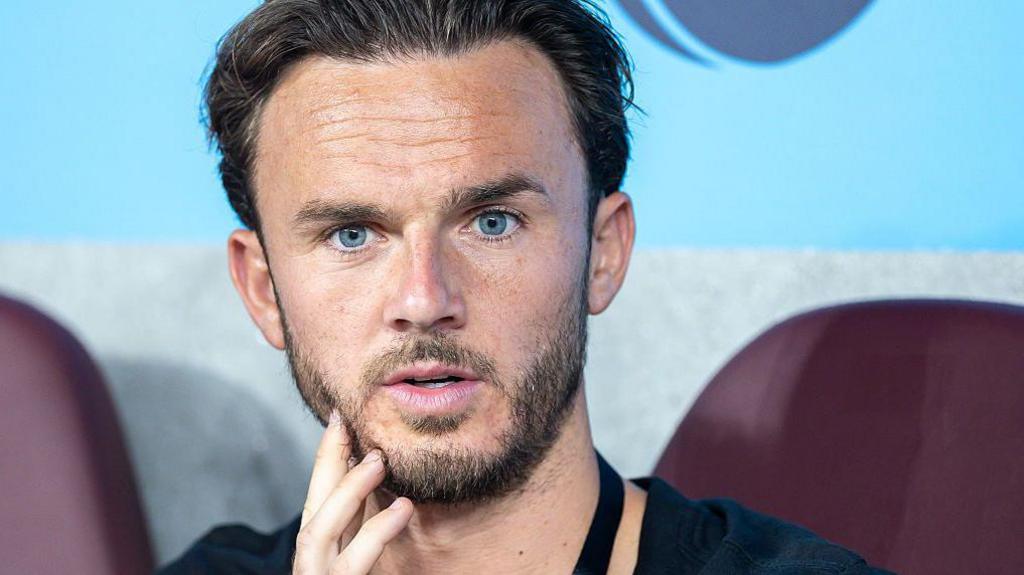Tottenham Hotspur’s midfielder, James Maddison, is facing a significant setback in his career as he has sustained a torn anterior cruciate ligament (ACL), which will likely keep him sidelined for the majority of the upcoming football season. Announcements regarding Maddison’s injury have stirred concern among fans and team management alike, highlighting the critical impact of such injuries on a player’s performance and as well as team dynamics.
Maddison, who made headlines after joining Tottenham from Leicester City in a deal worth approximately £40 million in 2023, suffered the ACL injury during a pre-season draw against Newcastle while on tour in South Korea. The match held in the vibrant city of Seoul saw the promising midfielder collide awkwardly, pointing towards a distressing injury that would later be confirmed by medical staff. Following his return to the UK, assessments were made that unveiled the full extent of his knee injury.
Manager Thomas Frank expressed his concerns after the match, revealing that Maddison had re-injured the same knee that had previously kept him out of significant matches, including the Europa League final against Manchester United in May. This recurrence has raised urgent questions about Maddison’s fitness and ability to contribute effectively to the Spurs’ campaign in the forthcoming season.
While he is undergoing tests and preparing for surgery, the nature of an ACL injury signals a lengthy recovery period, often spanning several months. Predictably, the psychological toll on a player who is committed to performing at a top level can be immense. Maddison, aged 28, had a productive last season with Tottenham, marked by 12 goals in 45 appearances; such statistics only amplify the void his absence will leave in the team.
As the situation unfolds, the club’s management faces the pressing challenge of adjusting their squad strategy. Maddison’s departure also coincides with Tottenham’s need to fill other attacking positions, particularly in the wake of Son Heung-min’s anticipated absence. The loss of these key players during crucial fixtures could prove detrimental as the team attempts to mount a competitive challenge in the Premier League.
Coach Frank must navigate the intricacies of team selection and tactics without two of his vital attacking assets, placing pressure on the remaining squad members to step up. More critically, it suggests a possible shift in the club’s transfer activities. With Maddison’s contribution once considered essential, it’s imperative that Tottenham seeks to procure new talents, particularly to bolster their midfield options. The absence of Maddison raises questions of whether the team can maintain its competitive edge in the league and in European competition.
Rumors suggest that Tottenham management might revisit their interest in Nottingham Forest’s Morgan Gibbs-White, a move that could have mitigated some of the urgency in addressing Maddison’s position. However, developmental strategies must now take precedence, as acquiring players capable of filling this considerable void won’t be an easy feat.
Within the context of team morale, there’s a prevailing sense of empathy for both Maddison and manager Thomas Frank. Losing a key player prior to a demanding season is undoubtedly a blow, making support from the club and fans essential during this time. Frank’s ability to rally the squad and encourage resilience will be pivotal for Tottenham’s performance moving forward.
This unfortunate injury scenario signals a critical juncture for Tottenham Hotspur’s season, compelling the club to reconsider tactical roles and possibly adapt their game strategies to navigate the forthcoming months with diminishing resources. The coming weeks will unveil further developments concerning Maddison’s recovery and the team’s adjustments, marking a challenging phase for all associated with the club.











